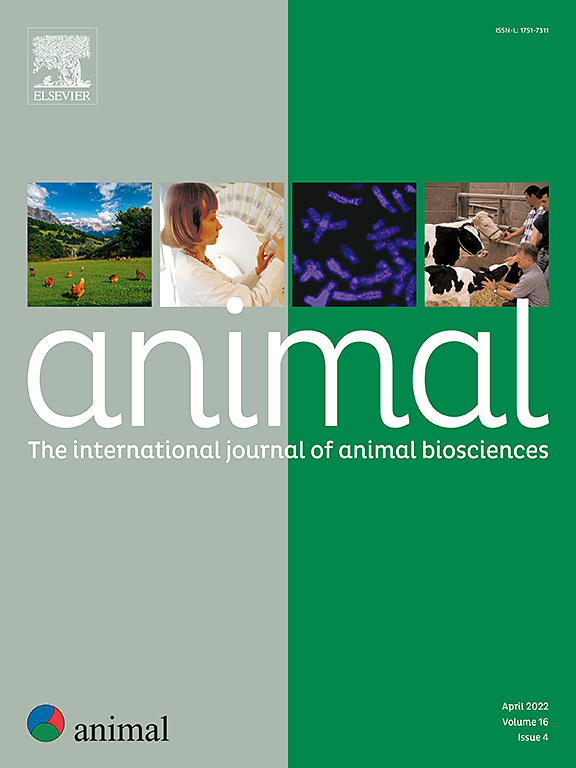Are olfactory stimuli able to induce emotional responses in a positive context in ewes?
IF 4.2
2区 农林科学
Q1 AGRICULTURE, DAIRY & ANIMAL SCIENCE
引用次数: 0
Abstract
The perception of olfactory stimuli can influence animal emotions and behaviours, which are critical for survival and adaptation. This study explored the properties of three olfactory stimuli (orange essential oil, wolf faeces, and cadaverine) to induce emotion in sheep, in a non-stressful environment enriched with social and food resources. Contrary to expectations, wolf faeces, while repellent, did not trigger overt stress behaviours such as increased vocalisations or agitation. Similarly, orange essential oil did not elicit strong positive valence responses, suggesting that the positive experimental context may mask its effect. Interestingly, cadaverine, typically associated with body decomposition, has no impact on sheep behaviours except that is induced emetic responses in two individuals, indicating potential disgust. Overall, this research highlights the complex interplay between social, food, and environmental factors in shaping the emotional responses of sheep to olfactory stimuli, underscoring the importance of context and individual variability. These findings contribute to a better understanding of olfactory influences on animal welfare and behaviour.
嗅觉刺激是否能够在积极的环境中诱导母羊的情绪反应?
嗅觉刺激的感知可以影响动物的情绪和行为,这对生存和适应至关重要。本研究探讨了三种嗅觉刺激(橙精油、狼粪和尸胺)在充满社会和食物资源的无压力环境下诱导绵羊情绪的特性。与预期相反,狼的粪便虽然令人反感,但并没有引发明显的压力行为,比如增加叫声或躁动。同样,橙精油没有引起强烈的正效价反应,这表明积极的实验背景可能掩盖了它的效果。有趣的是,通常与尸体分解有关的尸胺对羊的行为没有影响,除了在两只羊身上引起呕吐反应,表明潜在的厌恶。总的来说,这项研究强调了社会、食物和环境因素在塑造羊对嗅觉刺激的情绪反应方面的复杂相互作用,强调了环境和个体差异的重要性。这些发现有助于更好地理解嗅觉对动物福利和行为的影响。
本文章由计算机程序翻译,如有差异,请以英文原文为准。
求助全文
约1分钟内获得全文
求助全文
来源期刊

Animal
农林科学-奶制品与动物科学
CiteScore
7.50
自引率
2.80%
发文量
246
审稿时长
3 months
期刊介绍:
Editorial board
animal attracts the best research in animal biology and animal systems from across the spectrum of the agricultural, biomedical, and environmental sciences. It is the central element in an exciting collaboration between the British Society of Animal Science (BSAS), Institut National de la Recherche Agronomique (INRA) and the European Federation of Animal Science (EAAP) and represents a merging of three scientific journals: Animal Science; Animal Research; Reproduction, Nutrition, Development. animal publishes original cutting-edge research, ''hot'' topics and horizon-scanning reviews on animal-related aspects of the life sciences at the molecular, cellular, organ, whole animal and production system levels. The main subject areas include: breeding and genetics; nutrition; physiology and functional biology of systems; behaviour, health and welfare; farming systems, environmental impact and climate change; product quality, human health and well-being. Animal models and papers dealing with the integration of research between these topics and their impact on the environment and people are particularly welcome.
 求助内容:
求助内容: 应助结果提醒方式:
应助结果提醒方式:


